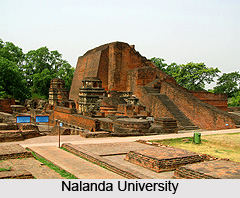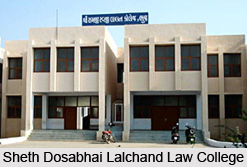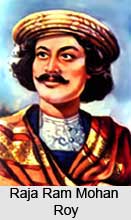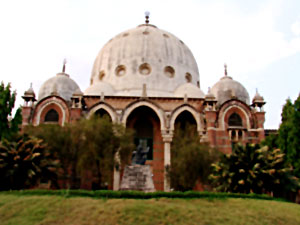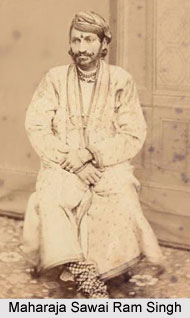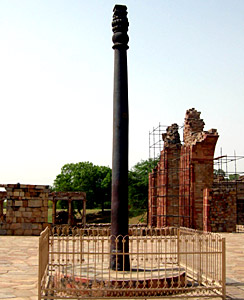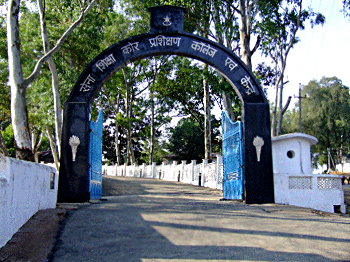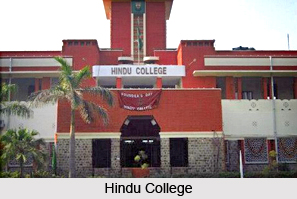 Hindu College is located inside the premises of Delhi University, University Enclave, Delhi - 110007, India. Hindu College had a modest beginning; it was first housed inside a tiny school building in Kinari Bazar, Chandni Chowk.
Hindu College is located inside the premises of Delhi University, University Enclave, Delhi - 110007, India. Hindu College had a modest beginning; it was first housed inside a tiny school building in Kinari Bazar, Chandni Chowk.
In 1902 Punjab University, to which the college was affiliated, gave a threat to nullify its affiliation unless the then college authorities built a new building of its own. At that time, Rai Bahadur Lala Sultan Singh came to the rescue and contributed a portion of his property at Kashmiri Gate, which was initially possessed by another person. In 1953, the Hindu College shifted to its current campus.
Hindu College has an ennobling history behind it. During the Independence movement Hindu College became a hub of logical debate especially during the time of the Quit India Movement. The College houses an amphitheatre, built at Kashmiri Gate which had drawn admiration of famous freedom fighters in India like Annie Besant, Lokmanya Tilak, Mahatma Gandhi, Sarojini Naidu, Pt. Madan Mohan Malviya, Motilal Nehru, Jawaharlal Nehru and others.
Hindu College has undergone spectacular growth and development in the passing days. Presently it is one of the most renowned `post-graduate co-educational` colleges of India and also ranked amongst the first rate colleges of Delhi. It treasures the team of about hundred efficient faculty members and a standardised student body comprising over two thousand student members. It admit students in different disciplines like science, humanities and social sciences. Undergraduate courses include B.A. Programme, B.A. (Honours) in English, B.Com (Hons), B.Sc. (G) Group A, B.Sc. (G) with Electronics, B.Sc. (Hons) in subjects like Physics, Chemistry, Botany, Zoology, Mathematics and Statistics. Besides, the Hindu college has begun quite a number of foreign language courses on part time basis like- German, French, Russian and Spanish.
Hindu College has a library considered one of the oldest amongst all the libraries of Delhi University colleges. The library was founded in 1899, the same year when the College was established. Presently it has a huge collection of over 1-lakh books, about 1000 bound volumes of scholarly journals and about 100 maps. Apart from books on a wide variety of subjects, the library takes subscription of several dailies, large number of popular magazines and a multitude of academic journals, both at national and international level on a regular basis. Hindu College Library is a member of Delhi Library Network (DHI, NET) which was launched with various objectives like sharing of resources, sharing amongst the member libraries thereby creating a network of libraries, offer computerised services etc. Other facilities include well-stocked laboratories, widespread playgrounds, a spacious seminar room with provisions of seating arrangements of roughly hundred people at a time. Male students also can avail hostel facilities of about two hundred student capacity. The auditorium of Hindu College is one of the most excellent auditoriums in whole Delhi. The counselling and placement cell, Disha is doing a whole lot of good work. They invite several multinational companies during campus interviewing. `Friend`s corner` has been started where students can get the opportunity to express their opinions and feelings on various issues. Women and Development Centre of the Hindu College is also dealing with certain sensitive gender issues that have proved beneficial for the students.
Apart from academics, special attention is given on increasing the interest of students on extracurricular activities, essential for their growth and development. Sports is given due attention. In fact enthusiastic students also can take part in competitions related to sports like Cricket, swimming, lawn Football, tennis. MECCA is the college festival that witnesses participation of the students in an overwhelming number in events like Quiz, Debate, Stage dancing, Street Play, Indian Music and others. Various cultural societies like `The Hindi Dramatic Society `ABHIRANG`; MASQUE - The English Dramatic Society, MANTHAN- the Quizzing society, Western Music Society, MOSSKREEK; Alankar- The Indian Music Society; fashion society- NAKSHATRA; Fine Arts Society; Vagmi- The Hindi Debating Society, Srijya- The Choreography Society` are omnipresent, to nurture the cultural exuberance amongst the students. Panchtatva is the Environment Club of Hindu College. Vivre is another society created with the purpose of giving a greater perspective about films and movies. To promote social awareness programmes amongst the students, NCC and NSS wings work really hard to strive towards excellence in Hindu College.
14.02.07
